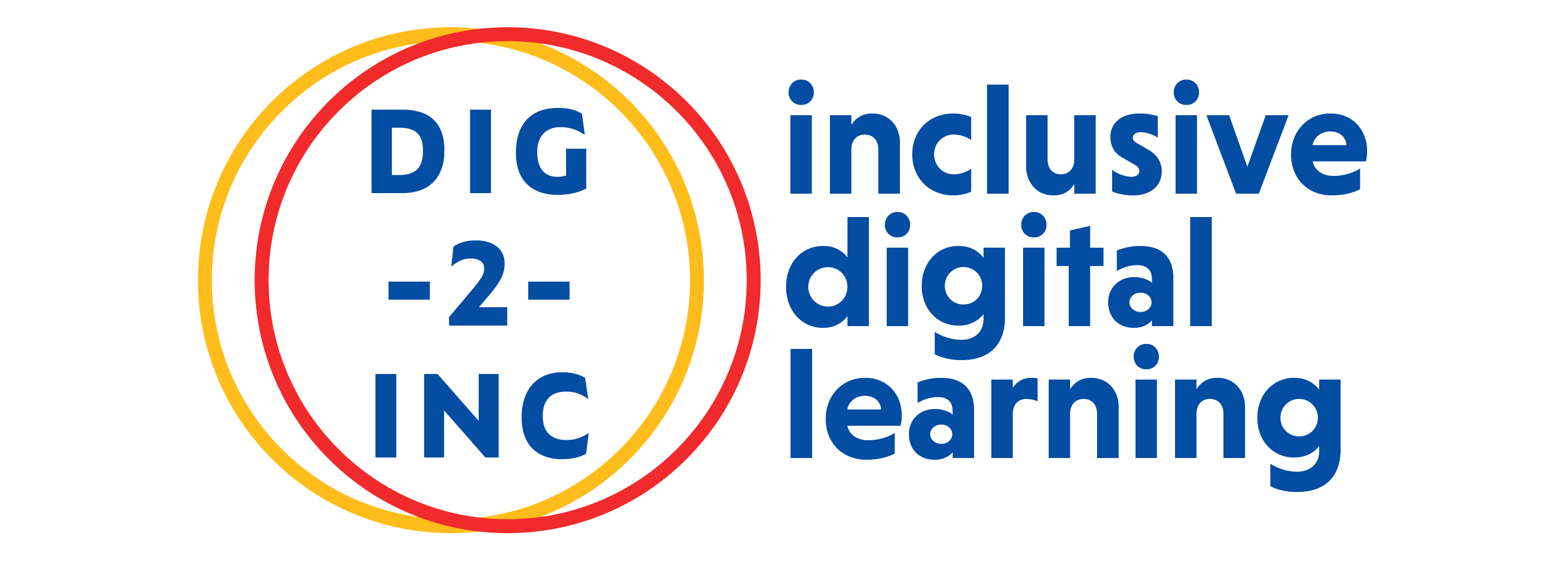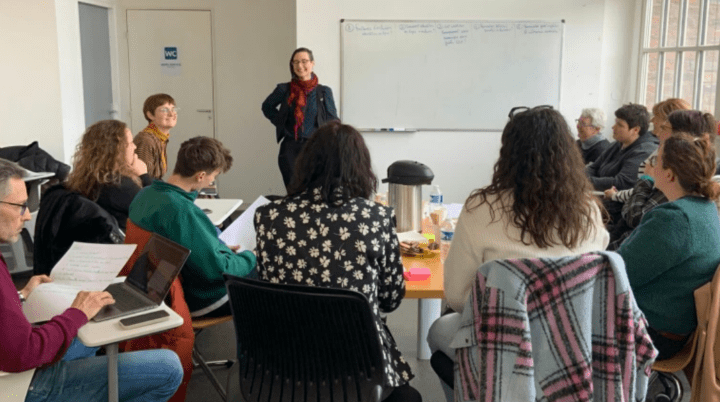Enhancing Inclusion for Low Socioeconomic Status Students: Insights from Dig-2-Inc World Cafés
The Dig-2-Inc project consortium hosted edu jams to enhance the academic inclusion of students from low socioeconomic backgrounds. Organized by Burgaski Free University (Bulgaria), University of Turku (Finland), University of Burgundy (France), and Technical University ‘Gheorghe Asachi’ of Iași (Romania), these events gathered diverse perspectives. The discussions resulted in key recommendations to improve digital learning opportunities for these students.
The edu jams utilized the “World Café” method, a dynamic approach to collaborative brainstorming. Participants moved between tables across multiple discussion rounds, refining ideas and offering insights. The discussions centred on five guiding questions that addressed barriers to inclusion in online education and strategies for improvement.
- Which factors contribute to exclusion in online education?
- How can online education be more inclusive?
- How can digital higher education become interesting for students with a low socio-economic status?
- How can social interaction be promoted in online education?
- How can students from the target group remain motivated in digital forms of education?
One of the main challenges identified was access to education, particularly due to financial and technological barriers. Students often struggle with unreliable internet, inadequate devices, and the costs of accommodation and travel. To address this, participants recommended scholarships, low-interest loans, and subsidies for necessary equipment. Additionally, the use of open educational resources (OER) was suggested as a cost-effective solution.
Flexibility in learning was another major theme. Students often balance studies with personal responsibilities, such as part-time jobs or family care. Recommendations included recorded lectures, asynchronous learning formats, and extended assignment deadlines to help students engage with their studies at their own pace.
Inclusive teaching practices were also emphasized. By developing faculty skills to create diverse, engaging, and accessible content, universities can better meet the needs of all students. Suggestions included using multimedia, gamified learning, and personalized approaches for students with disabilities or different learning styles to enhance academic success and student engagement.
Promoting social interaction and community-building was seen as crucial for reducing isolation among students. Participants stressed the importance of both online and face-to-face opportunities for interaction, including group activities, workshops, and social events, to foster a sense of belonging.
Personalized support services were deemed essential for student success in digital environments. Mentoring, academic counselling, motivational support, and assistance with technical issues were highlighted as necessary services to help students stay motivated and navigate their studies.
Participants also emphasized the importance of promoting student autonomy and self-efficacy. Encouraging self-reflection, self-assessment, and self-directed learning would empower students and improve learning outcomes. Addressing language barriers through simplified materials and accessible features, such as subtitles or screen reader compatibility, was also recommended.
While many recommendations were valuable, the feasibility of implementing them varied across universities. Some, like personalized support services, require significant resources, while others, like flexible learning and community-building activities, are more easily implemented. Ultimately, the success of these initiatives will depend on funding, raising important questions about the roles of governments, universities, and non-profits. In conclusion, the Dig-2-Inc World Cafés provided important insights into making digital education more inclusive for low socioeconomic students. The recommendations will guide future efforts to create a more equitable, accessible, and supportive learning environment for all students.
- Collaboratively Developing Recommendations for the Inclusion of students with a Low Social Economic Status through Edu Jams
Deliverable 3.1
The Dig-2-Inc – Inclusive Digital Learning project is an Erasmus+ initiative designed to equip educators and staff members with the necessary training and design principles to better support students from low socioeconomic backgrounds. The project brings together partners from Finland, Bulgaria, France, Germany, Italy, and Romania. For more information about the Dig-2-Inc Erasmus+ project, interested parties can reach out to the researchers directly via email.
Photo: Fanny Boutard as a facilitator at the World Café at the University of Burgundy organised as a two-hour event on 6 March 2024.

